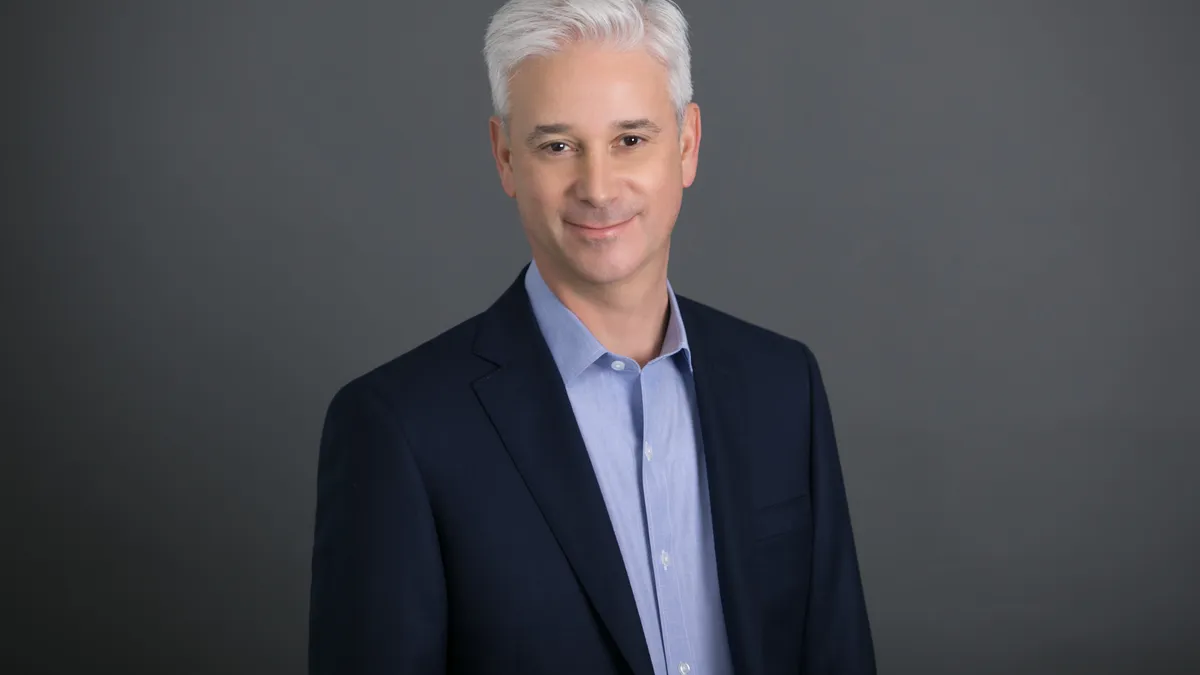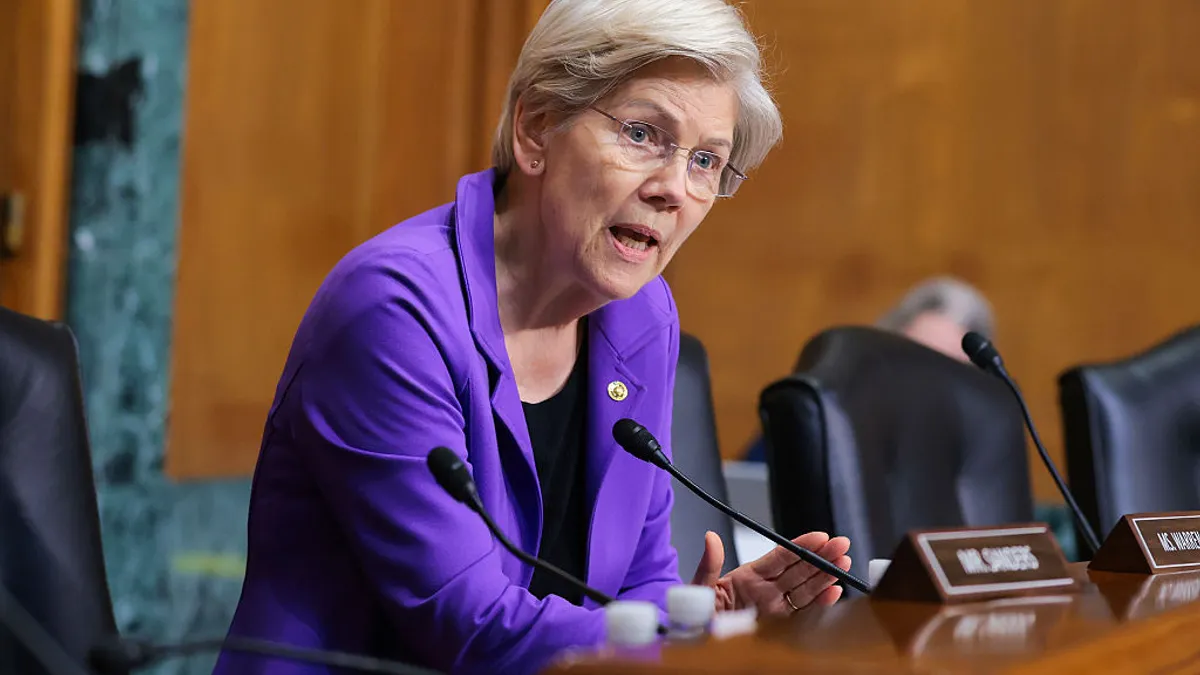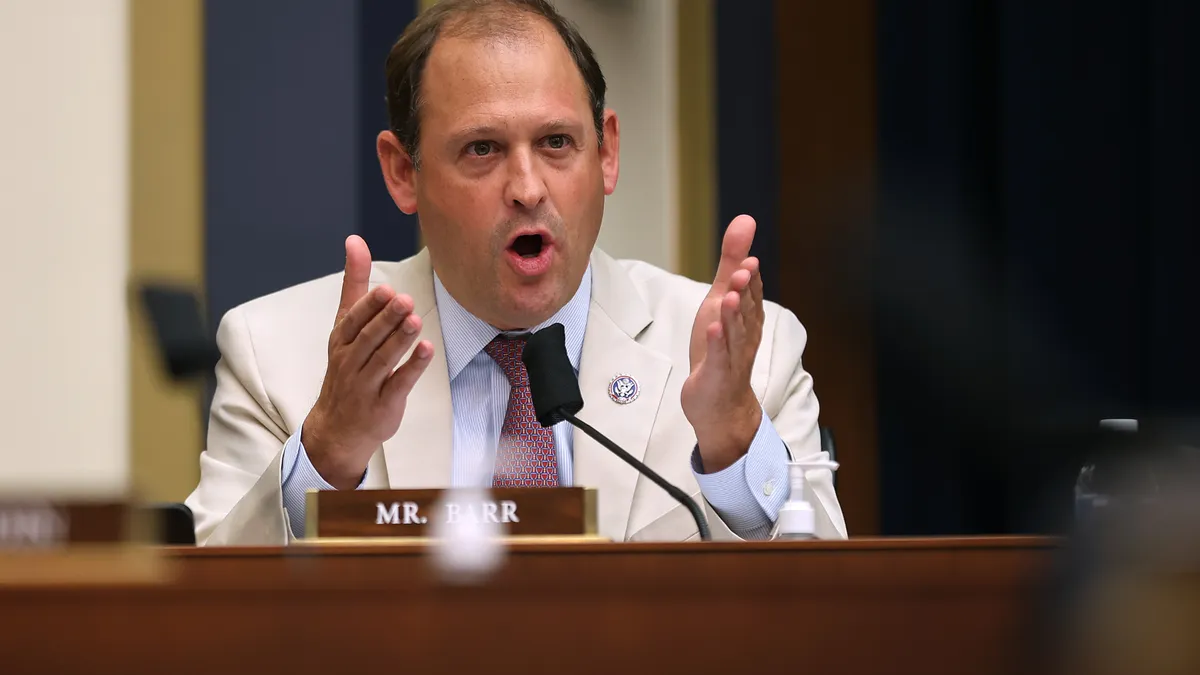Follow the banking sphere long enough, and you’ll see it has seasons. Flush and fallow, sure. But there are other times when the entire sector seems to latch onto a particular topic (see, junior analyst salaries in 2021; investments in racial equality in 2020). Or better yet, a specific energy.
Toward the end of the year, several finance executives at once may drop the filter they typically reserve for public appearances.
Or perhaps a particular regulator or trend may become the target of attention from several directions simultaneously.
Ask a week or two ago, and it may have appeared to be “recession season,” as observers asked bank figureheads their predictions on the severity of a coming economic downturn.
Morgan Stanley CEO James Gorman, at the bank’s annual shareholder meeting last week, put the likelihood of recession in the next 18 months at 50%. That's up from a 30% probability sometime earlier, Gorman noted.
JPMorgan Chase CEO Jamie Dimon, at his bank’s investor day last week, signaled “big storm clouds” on the horizon that “may dissipate,” as opposed to a “tsunami.”
While recession is certainly still a hot topic, perhaps a more accurate label for banking’s current epoch, judging from comments made Wednesday by several CEOs, is “reaction season.”
Some of that encompasses previous recession prognostications. Dimon, for one, revised his “storm clouds” analogy Wednesday, instead equating the risk of recession to a “hurricane.”
“That hurricane is right out there down the road coming our way. We just don’t know if it’s a minor one or Superstorm Sandy … And you better brace yourself,” he said Wednesday at the Bernstein Strategic Decisions Conference in New York City, according to the Financial Times.
At the same gathering, Bank of America CEO Brian Moynihan took a much less alarmist tone.
“We’re in North Carolina,” he said, referencing the bank’s Charlotte headquarters. “You’ve got hurricanes that come every year.”
Scharf on home lending
Wednesday's conference gave CEOs the chance to spout off in a manner more suited to December, with counters to a handful of running narratives that have nagged various banks.
Wells Fargo CEO Charlie Scharf offered a striking example Wednesday, addressing a mortgage-lending morass that has enveloped the bank for more than two months. A Bloomberg analysis in March found Wells Fargo approved just 47% of mortgage refinancing applications filed by Black homeowners in 2020 — a percentage that far lags its competitors.
Scharf on Wednesday indicated that, to some degree, Wells' hands are tied.
"We basically process the applications according to guidelines that [government-sponsored entities like Fannie Mae and Freddie Mac] tell us we should,” he said, according to Business Insider. “When those produce results, the people like them, we get the kudos for it. If they don't like them, we get the blame for it even though we're just following other people's underwriting guidelines.”
Scharf's comments came a day after Senate Banking Committee Chair Sherrod Brown, D-OH, noted mortgage lending among a laundry list of Wells woes he urged Scharf to fix "once and for all."
Scharf added Wednesday the mortgage statistics put the bank "in a difficult position, which we do need to be very thoughtful about from a reputation perspective."
Wells Fargo's home lending sector suffered a second blow in April, as the bank began laying off an undisclosed number of employees shortly after reporting mortgage origination volume had dropped 33% year over year.
"Mortgage is a hard business," Scharf said Wednesday, adding that Wells Fargo may trim the sector's footprint within the bank.
Wells is "in the process of changing strategically where mortgage fits in," Scharf said, emphasizing the sector is "extremely important to what we do as a company," and that the bank is "very committed to ensuring" it supports customers and communities.
"We don't think of it as a stand-alone profit generator, where you have production, servicing, balancing," Scharf said. "Those days are gone in terms of the right way to think about it inside our company."
Since taking over the bank's top role in 2019, Scharf has exhaustively reviewed the bank’s business model, cutting units that are seen as “non-core.”
A filter all his own
However, it was Dimon on Wednesday who appeared to prove his personal filter (or lack thereof) is in a class of its own.
In an interview at the Bernstein conference, the JPMorgan Chase CEO railed against institutional investors who vote based on recommendations from proxy advisers such as Glass Lewis and Institutional Shareholder Services.
“If that’s how you vote, shame on you. I mean seriously, you should be embarrassed, OK? And do your own homework,” Dimon said, according to the Financial Times and American Banker.
JPMorgan shareholders last month rejected — with 31% support — a compensation plan that included $52.6 million in one-time options granted to Dimon.
But he didn’t stop there. He had choice words, too, for lawmakers who accuse the bank of discriminating against fossil-fuel energy companies, firearms manufacturers and other industries that may have fallen out of social or environmental favor.
“I’m not woke,” Dimon said. “When we wake up in the morning, what we give a s--- about is serving customers, earning their respect, earning their repeat business.”
Dimon said, without giving further details, that some companies overreach with regard to social positions. JPMorgan, he said, aims to treat its employees — regardless of race, gender or sexuality — with respect.
“Any senator or congressman who says that’s woke, they’re not thinking clearly because I want to win in the marketplace,” Dimon said, according to the Financial Times. “I want the best employees, I want happy employees.”
On environmental concerns, Dimon said JPMorgan is “quite serious about climate” but that the U.S. is not “getting climate right.”
PNC CEO Bill Demchak on Thursday, at the same conference, doubled down on that assertion, describing U.S. policies to transition away from fossil fuels as “terrible.”
“Trying to shame people out of certain exposures for social reasons without a plan, without a formidable plan on the other side to actually cause changes, is nuts,” Demchak said, according to American Banker. “The political football that has become banking, as a way to somehow cause social change, because our politicians don't have the backbone to actually do what they want to do, or be out loud about it, is bulls---.”






















